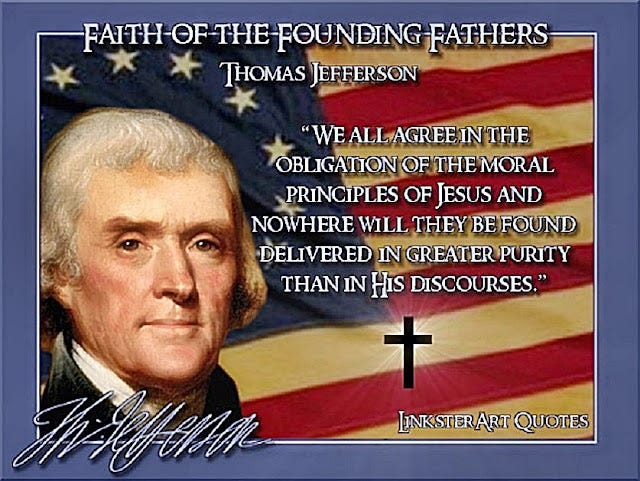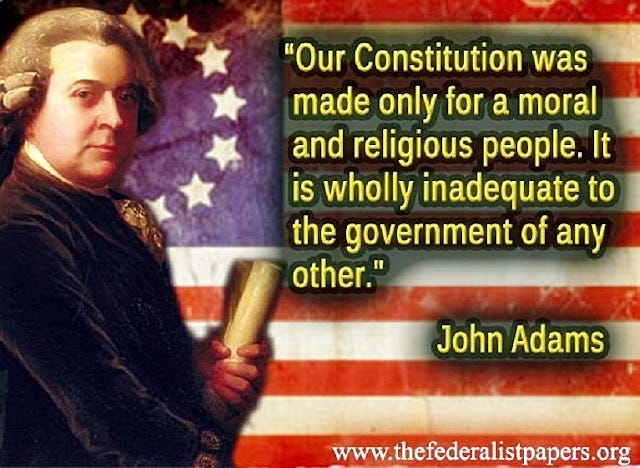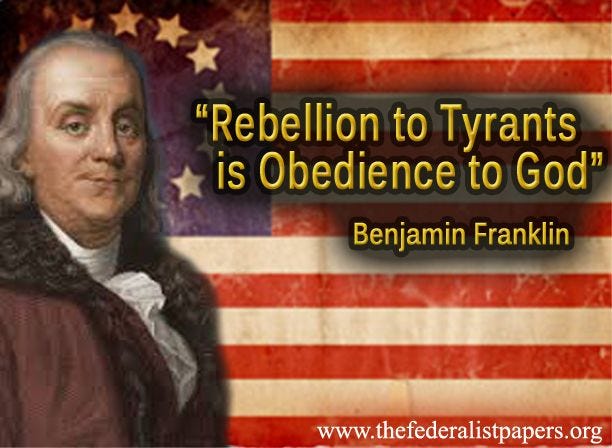Christian Principles and America’s Founding
Saying it’s so does not make it so. Therefore, to the extent possible within my allotted space, each week I try to unfold the world as I see it, but also explain why. In an open format I might derive and hammer each point I make, citing each source as I go, leaving nothing to doubt. But an analysis of that sort is not practical here, writing opinion pieces for the paper. That’s not a bad thing. But realize I cannot take you back to the very nut on any subject and bring you along as I would like. That said, today I am going to try to do just that, make a point and derive it for you. But you are going to have to do your part and consider what I offer. And my point today is liable to disappoint or dismay both liberals and libertarians, neither assemblage in my experience willing to understand that what they choose to believe is simply not true.
The truth I will express today, and which is verifiable within America’s founding documents, changes the entire political world in which both liberals and libertarians, in my experience, aspire to live and breathe. When they cannot or will not see the truth placed on a platter as I will below, then just realize that these good people aspire to live in a world of their own imagining and no man can change that.
In the one case, liberalism is based on the absolute truth that there is no absolute truth. Think about that. Libertarians, conversely, believe the truth is as they proclaim, and is undeniable, regardless of the truth. But of course, neither of these groups will agree with what I just told you. That is because their truth is different than the real truth, which they obviously cannot see. So now, let’s take a trip back to the real moment of truth, the founding of America and understand what that was all about.
Noting his penchant for abstract thought and an ability to memorialize ideas on parchment, America’s founders attending the 2nd Continental Congress assigned Virginia delegate Thomas Jefferson to establish a rationale by which the thirteen American-British Colonies might justify declaring independence before a world of onlooking nations. They understood the colonies could not leave without legitimate reasons as seen by that same world. So they asked Jefferson to formulate a rationale the Christian world would understand. Yes, I said, “Christian world.” Great Britain, France, Spain and practically all of Europe were Christian. And so, to justify their actions before the world, at least the world that mattered for their purposes, our founders derived their reasons for declaring independence from Biblical principles, which incidentally, they all believed, yes, Jefferson too. Jefferson expressed those principles as “truths” the validity of which they expected Godly people worldwide to recognize.

Because they derived from Scripture, Jefferson labeled America’s immutable founding truths, “the Laws of Nature and of Nature's God. He then listed them. Those truths should sound familiar: “All men are created equal. They are endowed by their Creator with certain unalienable Rights. Among these are Life, Liberty and the pursuit of Happiness. To secure these rights, Governments are instituted among Men, deriving their just powers from the consent of the governed.” Finally Jefferson wrote his trigger, “whenever any Form of Government becomes destructive of these ends, it is the Right of the People to alter or to abolish it, and to institute new Government, laying its foundation on such principles and organizing its powers in such form, as to them shall seem most likely to effect their Safety and Happiness.”

Jefferson and our founders expressed those principles not as laws of men, but as universal laws imposed on mankind by God Himself. In so doing, they recognized a legal jurisdiction within which they justified separating from Great Britain, King George having broken God’s universal laws. America’s Constitution is authorized by the Biblical principles in the Declaration.
And so when liberals express that our Constitution is living and breathing, as if its meaning varies with time, they are simply wrong. They are being used by those who would like the Constitution to say other than what it actually says.

And when libertarians proclaim there is only one purpose of legitimate government, regardless what they may hope that purpose is, they overrule America's organic laws, the Declaration and Constitution, neither which express their chosen principle and both which empower the people to determine what purposes their government might undertake, while protecting universal rights the people informed by Scripture decide to protect.
So when you hear the leaders of these groups proclaim this truth or that, invariably their source of authority will turn out to be their own personal preferences. And if they can get enough people to agree with them, they hope to create a base of political power. But neither ideology recognizes the real truth. That is because their subscribers prefer something else. That mankind tends to believe what it wants to believe rather than the truth is the first principle one learns in Sunday School. This is nothing new. God gives us His truth, His Laws. We either live by those laws, understanding God’s truth is real, or we live outside those laws, ignoring God’s truth. Living outside of God's truth is the reason mankind requires redemption. Our founders understood that truth and designed America in furtherance of God’s plan to redeem the world.



